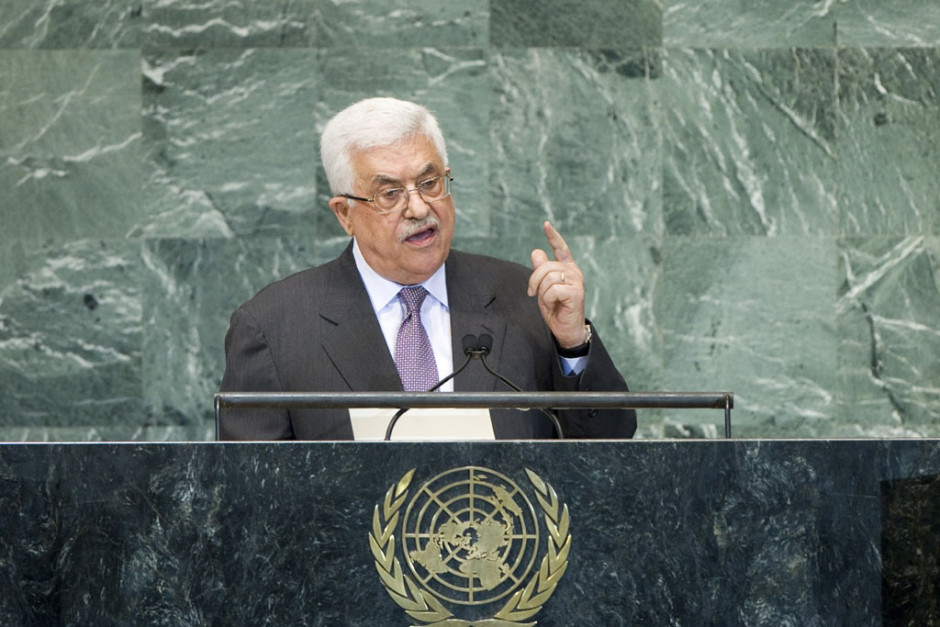The Palestinians can’t get their act together, no matter how often and how hard they try.
A little more than a year after signing a national reconciliation agreement — which Israel vigorously opposed and denounced as inimical to peace — Fatah and Hamas remain at loggerheads over a litany of divisive issues.
As a result, the Palestinians in the West Bank and the Gaza Strip are nowhere near to achieving real political unity, which has eluded them for years.
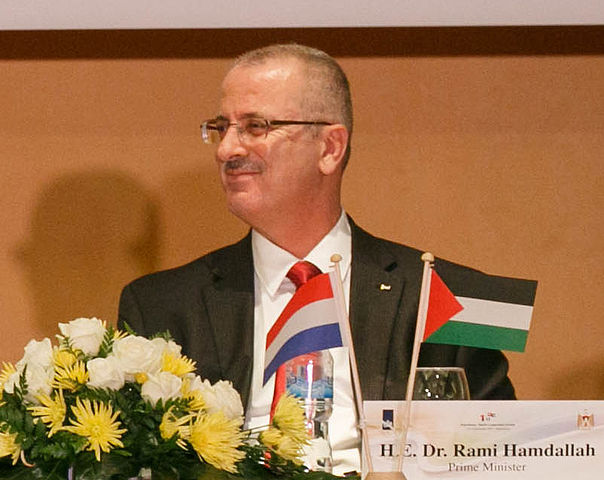
Due to these divisions, the Palestinian government that was sworn in last June — headed by Prime Minister Rami Hamdallah, who was personally appointed by Palestinian Authority President Mahmoud Abbas –is anything but unified.
The rift between Fatah — a secular nationalist movement — and Hamas — an Islamic fundamentalist organization which owes its origins to the Muslim Brotherhood in Egypt — is deep.
Fatah, formed in the mid-1950s under the leadership of the late Yasser Arafat, is the leading faction in the Palestine Liberation Organization, which was established in 1964. Hamas was formed in 1987, during the first Palestinian uprising. Israel encouraged its formation so as to weaken Fatah, creating a Frankenstein.
After Israel and the PLO signed the Oslo peace accords in 1993, the Palestinian Authority — a body created by the PLO — took control over parts of the West Bank and much of Gaza. In 2005, Israel withdrew unilaterally from Gaza. A year later, much to everyone’s surprise, Hamas defeated Fatah in Gaza’s first legislative election.
From that point forward, Fatah-Hamas tensions increased. Defying Fatah, Hamas formed its own security force in Gaza, a development that triggered armed clashes and still more mutual antipathy.
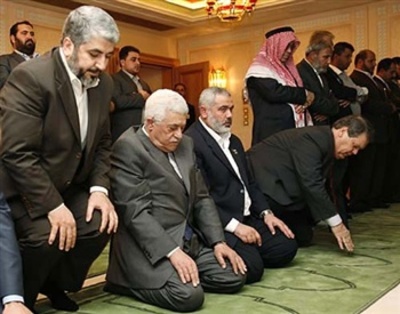
Following mediation efforts by Saudi Arabia, Fatah and Hamas signed the Mecca accord in February 2007. The two Palestinian factions created a national unity government, but it collapsed after Hamas seized Gaza in a violent coup in June of that year.
Since then, the West Bank and Gaza have been effectively cut off from each other.
Fatah and Hamas, in 2011 and 2012, tried yet again to reconcile, but in vain. Last April, they finally succeeded, announcing that a unity government would be formed. It looked like their seven-year schism had ended.
In accordance with this agreement, Hamas cabinet ministers stepped aside on the understanding that Fatah would henceforth administer and rule Gaza. This has not happened. Nor has Hamas disbanded its armed wing. Ismail Haniyeh, Gaza’s former prime minister, has vigorously rejected disarmament, saying that Israel’s occupation of Palestinian lands requires Hamas’ armed resistance.
Abbas has threatened to abrogate last April’s agreement unless Hamas complies with all its provisions and allows Fatah to operate in Gaza freely. As Abbas said last September, “If Hamas won’t accept a Palestinian state with one government, one law and one gun, then there won’t be any partnership between us.”
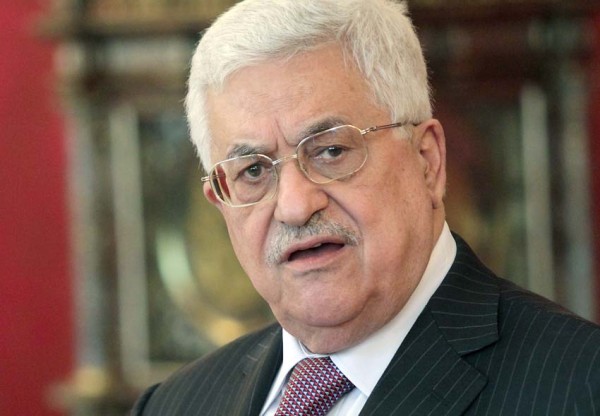
Chastened by Abbas’ threat, Hamas permitted Hamdallah to convene the first cabinet meeting of the new government in Gaza last October. Hamdallah thus became the highest-profile West Bank leader to visit Gaza since the chaotic days of 2007.
Since then, however, the situation has deteriorated.
Claiming that Hamas is running a shadow government in Gaza, Hamdallah has cast doubt on its sincerity to relinquish power. Worse still, the Palestinian Authority has accused Hamas of having attempted to overthrow Abbas.
In the meantime, the Palestinian Authority and Hamas remain at odds over the payment of salaries to Hamas-appointed government officials in Gaza. Abbas refuses to pay, causing further acrimony.
As Hamdallah has suggested, this issue has huge ramifications.
Unless the Palestinian Authority establishes a firm presence in Gaza, Israel is highly unlikely to lift its siege of Gaza. Israel imposed the blockade after Hamas seized Gaza. Under the terms of the blockade, the Israeli army restricts movement through several border crossings and regulates the import of construction materials, like steel and concrete, that can be used for military purposes.
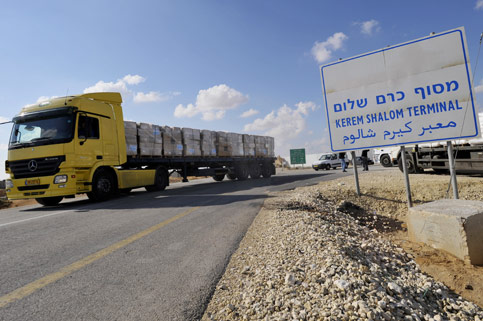
Egypt has not only adopted a similar policy, but has destroyed smuggling tunnels between the Sinai Peninsula and Gaza.
Last summer, Israel and Hamas fought a 50-day war, during which thousands of residential, commercial and administrative buildings were reduced to rubble. At a conference in Cairo shortly afterward, foreign donors working in tandem with the United Nations pledged to rebuild Gaza to the tune of $4 billion.
Till now, only about $100 million has been received. The reason is clear. If Hamas continues to keep the Palestinian Authority out of Gaza, it’s questionable whether it will be reconstructed any time soon. The Palestinian Authority seeks full control of Gaza, and donor nations would prefer to channel funds through the PA.
In a measure of the mistrust between Fatah and Hamas, Hamas has lodged complaints that hundreds of its operatives in the West Bank, particularly in Hebron, Ramallah and Nablus, have been arrested and subjected to attacks.
Salah Bardawi, a Hamas official, recently charged that Palestinian Authority security agencies betrayed the Palestinian cause during last summer’s Gaza war by providing Israel with targeting information that caused the deaths of scores of Palestinians, including women and children.
In addition, Hamas is upset by the Palestinian Authority’s broad security cooperation with Israel, a practice that Abbas has threatened to end.
Palestinian security cooperation with Israel enabled the Israeli army to kill two Hamas members suspected of having killed three Israeli teenagers –Eyal Yifrach, Naftali Frenkel and Gilad Shaar — last June.
Another problem blocking full reconciliation turns on elections.
Abbas, Arafat’s successor, has been president since 2005, but has not called an election since then. His term of office officially expired in 2009, but he has yet to set a date for new presidential and legislative elections.
Hamas supporters have called for fresh elections, but the Palestinian Authority appears wary, cognizant that Hamas might prevail. Recently, Hamas swept to victory in a student council election at Birzeit University, a liberal university in the West Bank.
One of the most serious problems marring the Palestinian Authority’s relationship with Hamas revolves around the issue of recognition of Israel. While the PLO and the PA have recognized Israel’s existence, though not specifically as a Jewish state, Hamas, in its charter, remains committed to Israel’s destruction and opposes a two-state solution.
At a minimum, Hamas is ready to sign a long-term truce with Israel, provided Israel withdraws to the pre-1967 armistice lines and agrees to the right of Palestinian refugees to return to their former homes in what is now Israel.
The Palestinian Authority and Hamas are also at odds over diplomacy.
Last December, the PA submitted a draft resolution to the UN Security Council setting a deadline for reaching a permanent peace agreement with Israel. The resolution was rejected, prompting Hamas to belittle Abbas and describe his initiative as “political foolishness.”
It would appear that the chasm between the Palestinian Authority and Hamas is as wide as ever, blocking the chances of genuine reconciliation and denying the Palestinians the prospect of a Palestinian unity government.
